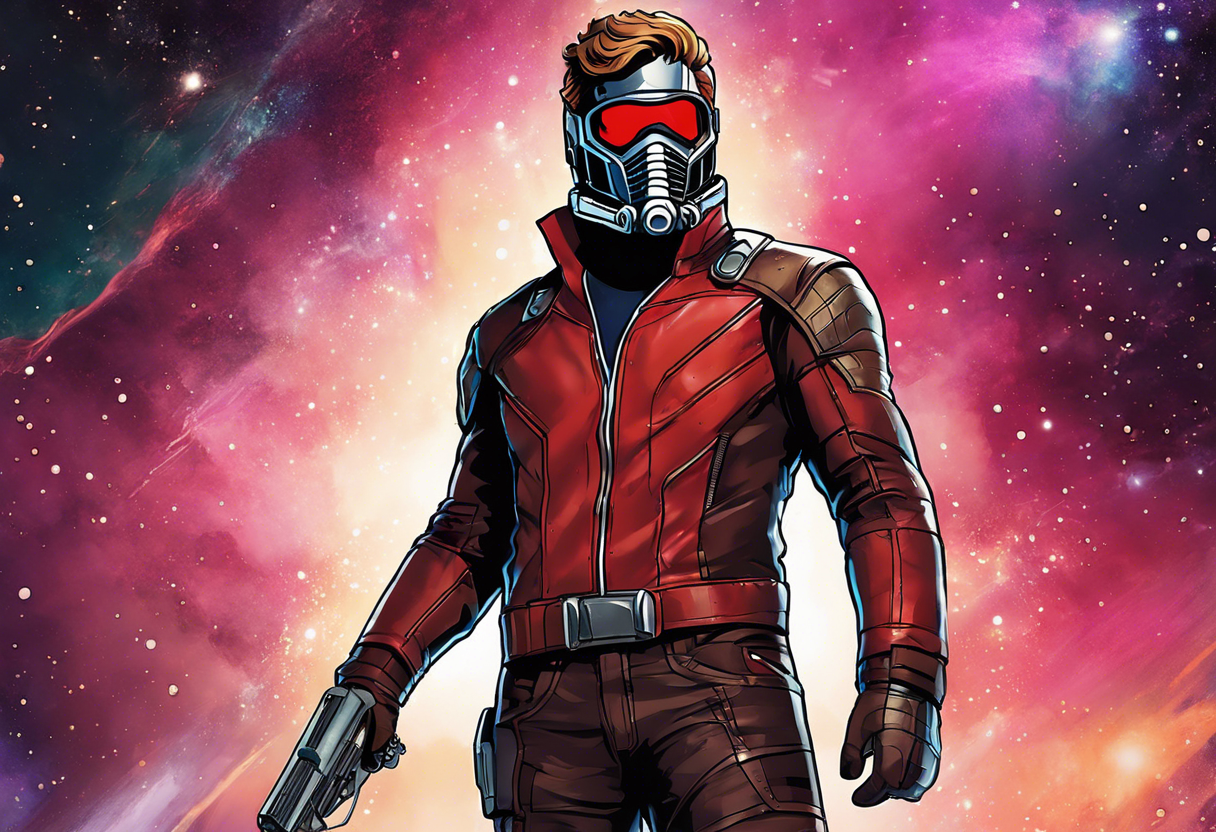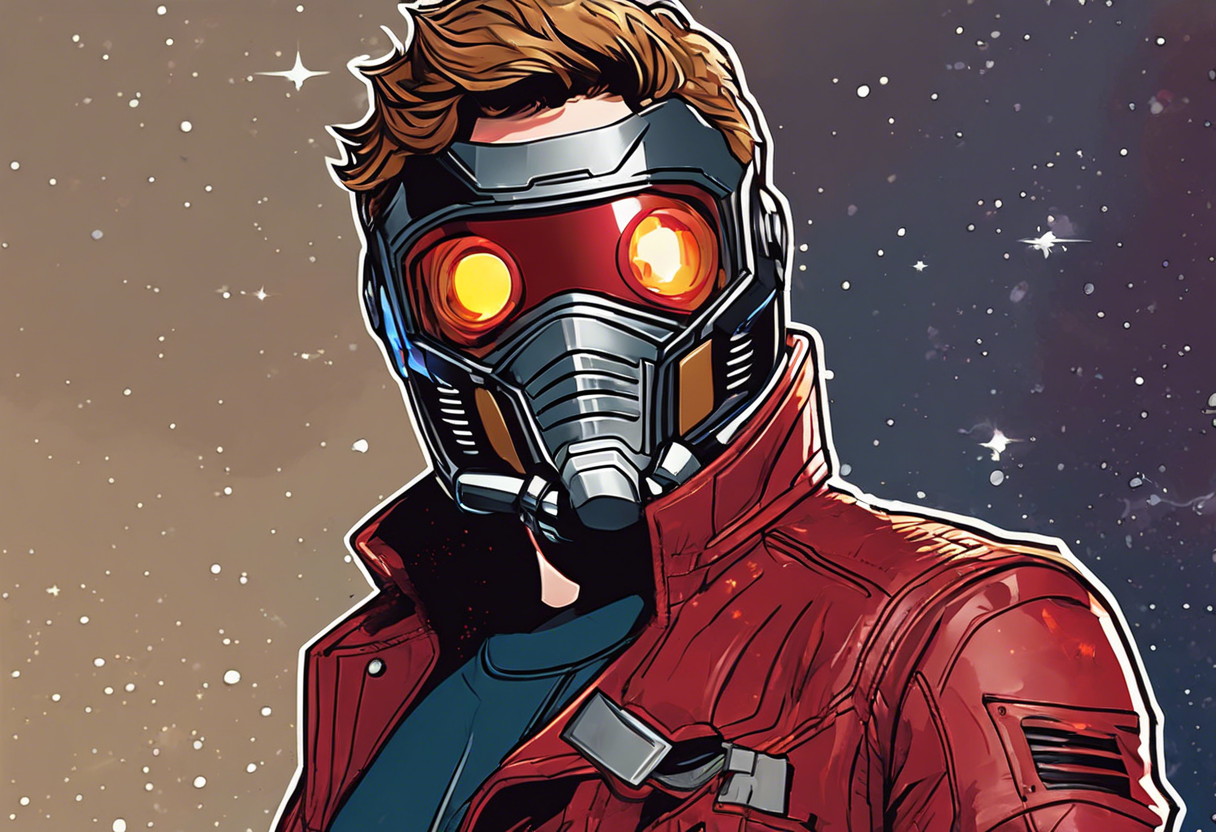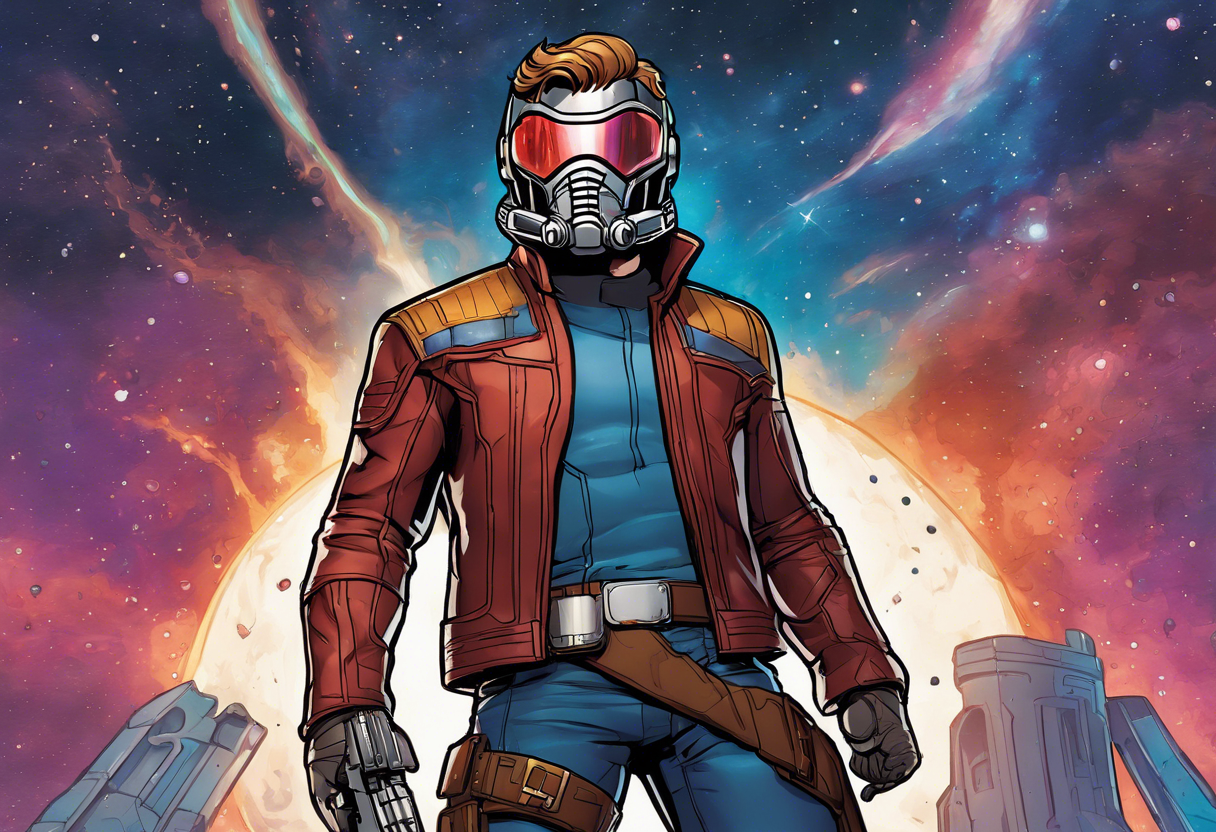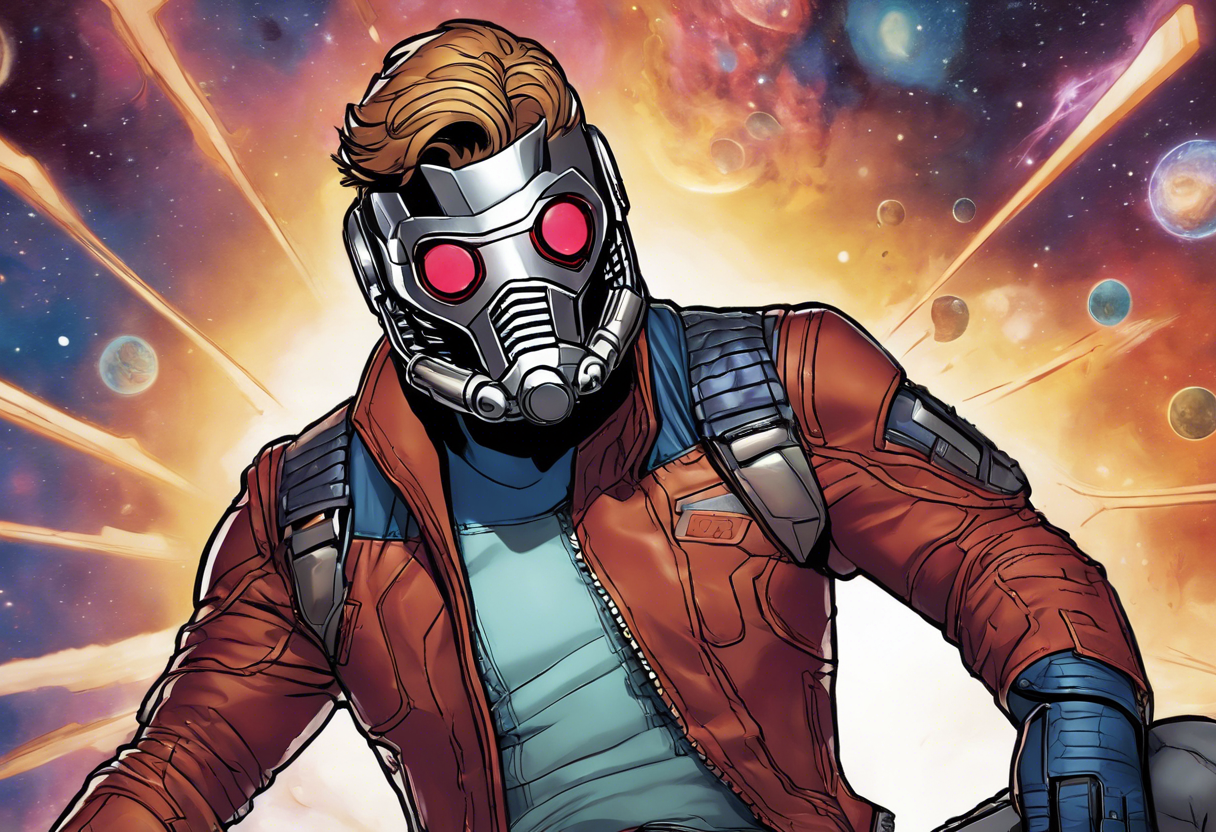Introduction
Star-Lord, also known as Peter Jason Quill, is a pivotal character in the Marvel Cinematic Universe (MCU), created by Steve Englehart and Steve Gan and first appearing in Marvel Preview #4 in January 1976. In the MCU, Star-Lord is portrayed by Chris Pratt and has become an iconic figure, known for his bravery, wit, and leadership qualities.
Star-Lord’s origin story begins on Earth, where he was a young boy who endured the traumatic loss of his mother. Immediately after her death, he was abducted by a group of space pirates known as the Ravagers, led by Yondu Udonta. This abduction marked the beginning of Quill’s transformation into Star-Lord. Raised among the Ravagers, he developed into a skilled thief and fearless explorer[4].
His hybrid heritage, being the son of a human mother and an extraterrestrial father, Ego the Living Planet, grants him unique abilities and a pivotal role in the cosmic landscape of the MCU. Star-Lord’s character is significant not only because of his heroic deeds but also due to his complex background and emotional journey, which resonate deeply with audiences[1].
Role in the Story
Star-Lord’s storyline is central to the Guardians of the Galaxy series and extends into the broader MCU. In Guardians of the Galaxy (2014), Star-Lord emerges as an audacious thief with a heart of gold. His initial quest for the Orb, a relic of immense power, introduces his tumultuous past and sets the stage for his transformation from a self-serving scavenger to a team-oriented hero. This shift becomes apparent during the climactic battle against Ronan the Accuser, where Quill’s quick thinking and bravery turn the tide in favor of the newly formed Guardians[4].
In Guardians of the Galaxy Vol. 2 (2017), the sequel delves deeper into Quill’s origins, especially his relationship with his father, Ego. Star-Lord grapples with newfound powers and the revelation of his potentially cosmic future. However, the emotional core of the film lies in his realization about the true meaning of family, particularly highlighted by Yondu’s sacrifice. This loss reinforces the complexities of Quill’s character, marking a significant step in his emotional maturity[4].
Star-Lord’s character is further tested in Avengers: Infinity War (2018) and Avengers: Endgame (2019), where he faces cosmic threats and reunites with the Avengers to thwart Thanos’ plans. His impulsiveness and emotional volatility, particularly in response to Gamora’s death, lead to critical consequences, emphasizing his tragic flaw and adding depth to his heroism[4].
Character Analysis
Star-Lord is a compelling character due to his multifaceted personality. At first glance, he is a cocky, charming, and funny individual who uses these traits to steal, swindle, and manipulate. However, beneath this exterior lies a complex web of emotions and motivations. His difficult upbringing, the loss of his mother, and his emotional connection to the Guardians create a continuous struggle to focus on the greater good[1].
Star-Lord’s strengths include his resourcefulness, courage, and leadership. He excels in conceiving inventive and unorthodox solutions to problems, often rivaling the intellectual planning skills of characters like Tony Stark. His loyalty and love for his Guardians family remain his greatest strength, driving him to protect and defend them at all costs[1].
Despite these strengths, Star-Lord has significant flaws. He is often immature and petty, primarily due to his upbringing. His impulsiveness and emotional volatility can lead to critical mistakes, as seen in his reaction to Gamora’s death in Avengers: Infinity War. However, these flaws also make him relatable and human, as he grapples with the same emotional struggles that audiences face[4].
Themes and Symbolism
Star-Lord embodies several key themes in the MCU, including the power of family, the importance of loyalty, and the struggle between personal identity and greater responsibility. His journey from an outlaw to a hero is symbolic of redemption and the potential for personal growth. The Guardians of the Galaxy, who become his family, represent a diverse and inclusive group that transcends traditional familial bonds[1].
The theme of family is particularly poignant in Star-Lord’s storyline. His relationship with Yondu, who acts as a father figure, and his connections with the other Guardians highlight the importance of found family and the bonds that form between people from different backgrounds. This theme is underscored by the sacrifices made by Yondu and other characters, which reinforce the idea that family is not just about blood but about the relationships we build[4].
Cultural Impact
Star-Lord has had a significant cultural impact since his introduction in the MCU. He has become a household name, and his character has fostered a dedicated fandom. The blend of retro 80s culture and interstellar science fiction in his character has created a unique niche within the superhero genre, resonating with fans of all ages[4].
His character has also influenced popular culture, with references to Star-Lord appearing in various forms of media, from music to memes. The character’s relatable struggles with loss, identity, and love have made him a beloved figure, and his interactions with other characters have added depth to the MCU’s narrative[4].
Critical Reception
Critics and audiences have generally praised Star-Lord’s character, highlighting his humor, bravery, and emotional depth. Chris Pratt’s portrayal has been particularly lauded for bringing a unique blend of humor and vulnerability to the role. However, some critics have noted that Star-Lord’s impulsiveness and ego can sometimes overshadow his heroic qualities[2].
Despite these criticisms, Star-Lord remains one of the most beloved characters in the MCU. His complex character development and the emotional resonance of his story have made him a fan favorite. The character’s ability to balance humor and seriousness has also been praised, making him a standout in the superhero genre[4].
Legacy
Star-Lord’s enduring appeal lies in his relatable character arc and the themes he embodies. His journey from an outlaw to a hero is a powerful metaphor for redemption and personal growth. The character’s influence can be seen in other works and character archetypes, where the blend of humor, bravery, and emotional depth has become a staple of modern storytelling[1].
In contemporary discussions, Star-Lord’s character continues to inspire conversations about family, identity, and the importance of relationships. His legacy extends beyond the MCU, influencing how characters are developed in other franchises and media. As a cultural icon, Star-Lord remains a significant figure, symbolizing the power of storytelling to connect with audiences on a deep emotional level[4].
References
- https://screencraft.org/blog/character-analysis-how-star-lord-goes-from-outlaw-to-hero/
- https://gamerant.com/guardians-of-the-galaxy-3-star-lord-character-redemption/
- https://screenrant.com/star-lord-biggest-comic-mcu-movie-changes-explained/
- https://glcoverage.com/2024/09/04/character-analysis-star-lord/
- https://www.biowars.com/blog/star-lord/





